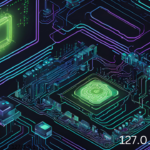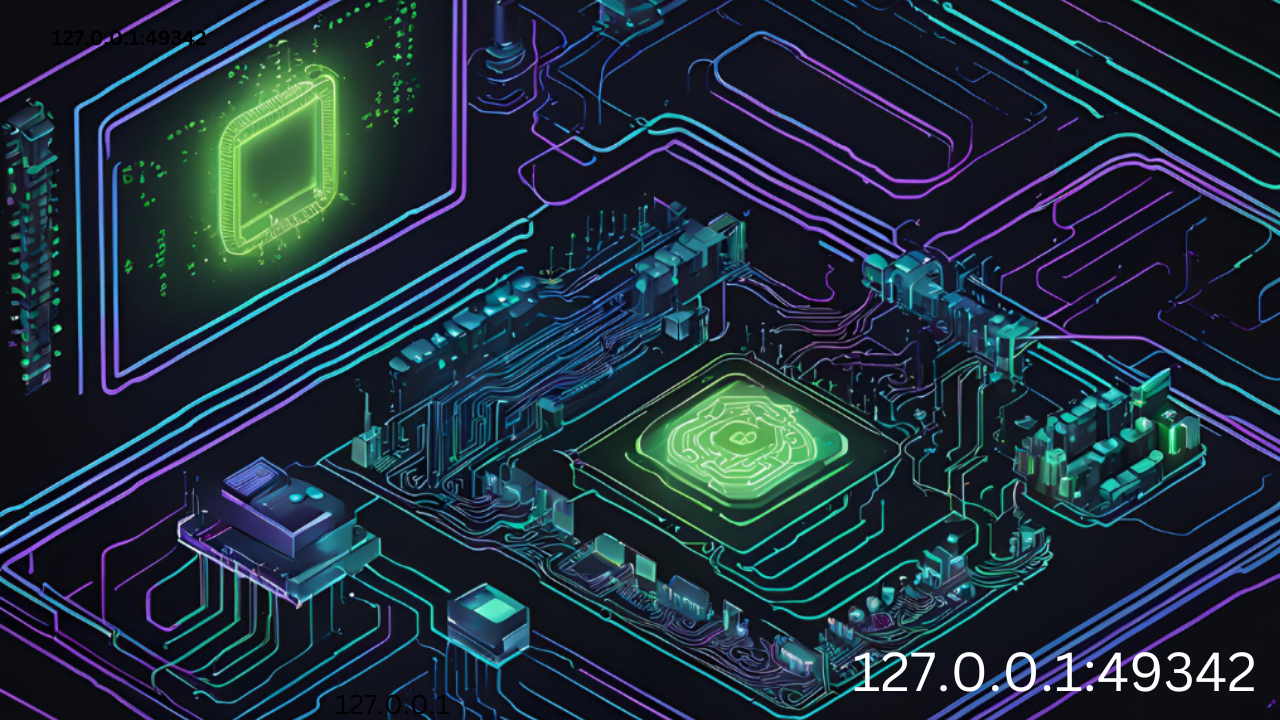127.0.0.1:49342 might seem like a random sequence of numbers to the untrained eye, but it is significantly important in networking and software development. This combination of an IP address and a port number plays a crucial role in how computers communicate with themselves. This article will delve deep into what 127.0.0.1:49342 represents, its applications, and why it matters in modern computing.
What Does 127.0.0.1:49342 Mean?
To understand 127.0.0.1:49342, it is essential to break it into two components:
- 127.0.0.1: The Loopback Address
- 127.0.0.1 is known as the loopback address in networking.
- A unique IP address refers to the local computer or device.
- Any data sent to this address is immediately redirected to the same machine, making it a vital tool for testing and troubleshooting network applications.
For example, if you’re running a server on your computer, accessing 127.0.0.1 through a browser connects you directly to that server. It acts as a virtual doorway within your system.
49342: The Port Number
- A port number serves as an endpoint for network communication.
- In this case, 49342 is a port identifying a specific service or application running on your computer.
- Combining an IP address and a port number allows multiple services to operate simultaneously without conflicts.
Together, 127.0.0.1:49342 identifies a particular service running on your local computer, accessible only by that machine.
How is 127.0.0.1:49342 Used?
The uses of 127.0.0.1:49342 are vast, particularly in software development, web development, and network management. Let’s explore some common scenarios:
Web Development
- Developers often rely on 127.0.0.1:49342 to test websites and applications locally.
- Setting up a local server enables them to check how their websites function without making them publicly accessible.
- For instance, navigating to 127.0.0.1:49342 with a browser might display a web page hosted on a development server running on port 49342.
- Software Testing
- When creating applications with networking features, developers use 127.0.0.1 to simulate network communication.
- Testing on the loopback address ensures that the application works correctly without external interference.
- Remote Access Configuration
- Some remote access tools utilize 127.0.0.1 alongside specific ports like 49342 to establish secure, localized connections between two devices.
- Debugging and Diagnostics
- Network administrators frequently use 127.0.0.1:49342 to diagnose issues with local services.
- Since the loopback address doesn’t rely on external networks, it is an excellent tool for isolating problems.
Why is 127.0.0.1:49342 Important?
Localized Testing
The primary benefit of 127.0.0.1:49342 is that it allows applications to operate in a controlled environment. Developers can ensure functionality without exposing their work to the internet.
Security
Since 127.0.0.1:49342 is only accessible to the local machine, it provides a layer of security. Sensitive applications can run safely without external threats.
Versatility
127.0.0.1:49342 is versatile. It accommodates various use cases across different platforms, whether testing a web server, diagnosing network issues, or simulating user interactions.
Common Questions About 127.0.0.1:49342
- Can I Access 127.0.0.1:49342 From Another Computer?
No, 127.0.0.1 is strictly local. It is designed to handle communications within the same computer. To make a service accessible from another device, you must use your computer’s IP address.
- Why is Port 49342 Used?
Port numbers like 49342 are often assigned dynamically by the operating system or chosen by developers for specific applications. It is one of over 65,000 available ports, making it a common choice for temporary or development purposes.
- What Happens if Port 49342 is Blocked?
If port 49342 is blocked, any application relying on it will fail to communicate. This could happen due to firewall restrictions or conflicting services. Adjusting your firewall settings or assigning a different port can resolve the issue.
Practical Examples of 127.0.0.1:49342
Let’s consider a few real-world scenarios where 127.0.0.1:49342 might be utilized:
- Hosting a Web Page Locally
- A developer sets up a web server on port 49342 to host a new application. Accessing 127.0.0.1:49342 in the browser displays the application in its development stage.
- Testing API Endpoints
- Software engineers working on APIs often use 127.0.0.1:49342 to test request and response functionalities.
- Debugging Local Databases
- Running a database service locally often involves accessing it through an address like 127.0.0.1:49342.
Conclusion
In summary, 127.0.0.1:49342 is more than just an IP address and port number—it is a gateway to localized, secure, and efficient computing. This combination is an essential tool for developers and network administrators, from testing websites to debugging software.
By understanding and leveraging 127.0.0.1:49342, you unlock the potential to create, test, and troubleshoot with unparalleled precision. It is a cornerstone of modern computing, ensuring that applications and services function seamlessly in a controlled environment. So the next time you encounter 127.0.0.1:49342, remember its significance and how it powers the digital experiences we rely on daily.















